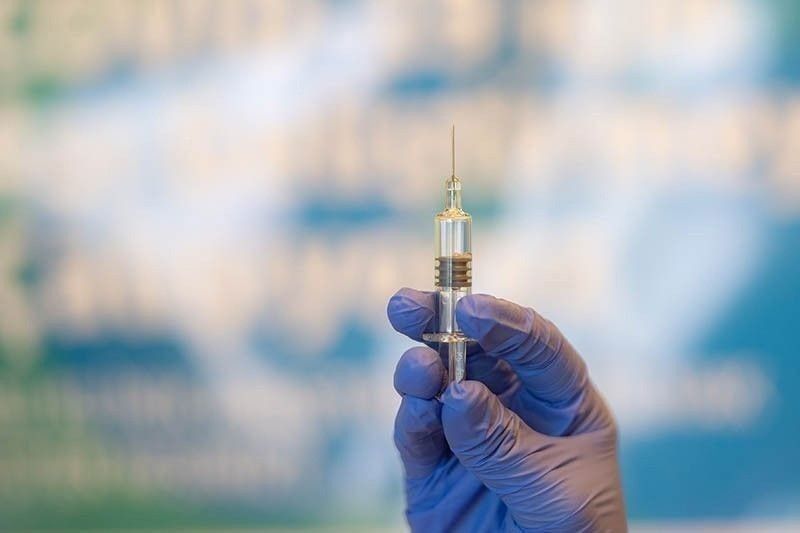Slow vaccine rollout may delay global trade recovery

MANILA, Philippines — A slower-than-expected roll-out of vaccines against COVID-19 coupled with fresh surges in infections can delay the recovery of global trade this year, according to a UK-based think tank.
Market intelligence firm Oxford Economics said in a new global brief that goods trade will continue to outperform services trade as transport and travel continue to be bogged down by restrictions. Sectors like food and consumer goods will also far outpace capital goods.
“Our baseline forecast looks for world trade in goods and services to rise eight percent this year after a nine percent decline in 2020,” said lead economist Adam Slater.
A faster rollout of COVID-19 vaccines will enable global trade to accelerate by over 12 percent as this will enable the loosening of mobility restrictions.
But in a downside scenario with a slower-than-expected vaccine distribution and renewed surges in infection, global trade recovery would be delayed to 2022.
“World goods trade recovered strongly in the second half of 2020 and by mid-2021 should be expanding at a double-digit annual pace. But the rebound is uneven, and this, plus coronavirus-related uncertainties, means risks around our baseline forecast are large,” said Slater.
Moving into the first half of 2021, trade recovery “will remain incomplete,” with trade volumes still set to be four percent lower by the second quarter than in the fourth quarter of 2019.
This partly reflects the still depressed level in Europe which is grappling with the presence of a more contagious COVID-19 variant.
“It remains to be seen if this is still the case after the new rounds of virus-related restrictions at the end of 2020 and in early 2021,” said Slater.
Philippine exports registered positive growth again in November 2020, reflecting improved demand from major trading partners such as China, Taiwan and the United States.
Export sales grew three percent annually to $5.79 billion in November from the pre-pandemic level of $5.62 billion in the same month in 2019. This was a reversal of the 1.2 percent and 0.2 percent annual declines in October and November 2020.
This was the also the fastest growth since January 2020 and was among the fastest in pre-pandemic months.
The Philippines has so far secured several vaccine deals, one for the procurement of 30 million vaccine doses from US drugmaker Novavax and for 25 million doses of the Sinovac vaccine developed by Sinovac Biotech of China.
The private sector has also secured 2.6 million doses from British drugmaker AstraZeneca.
The country aims to secure around 148 million vaccine doses this year, enough to inoculate 70 percent of the population.
Until the rollout of a vaccination program, the country can be expected to remain under lockdown this year.
Roll out will ‘take time’
At a press briefing, World Health Organization (WHO) country representative Rabindra Abeyasinghe noted, on the “global scale, vaccines are not available to roll out immediately.”
“There is going to be many types of vaccines that will need to be accommodated. There are going to be different conditions for administration and storage of those vaccines,” he added.
According to Abeyasinghe, if the vaccines can be used in a “very careful way,” the impact of the COVID-19 pandemic can be minimized and “hopefully” bring back economic activities.
He said that vaccines that have been authorized for emergency use have shown to be effective in reducing deaths and reducing severe disease.
This despite the fact that they have not gone through the “stringent safety assessment which normally happens with normal products.”
“The key issue is the Philippines does have a (vaccination) plan. We are looking at early implementation and early maximizing the impact of vaccination,” he added.
Contact tracing
This, as Abeyasinghe underscored the importance of contract tracing, especially since the Philippines is expecting a surge in COVID-19 cases due to increased mobility of people during the Christmas holiday.
He agreed that “this kind of close contacts will give rise to the transmission of the virus and infection of more people.”
He said it is “inevitable for the Philippines to see an increase of cases.”
WHO is pushing for “early detection of cases, sharing of information to contact tracing teams, management of cases so that chains of transmission are interrupted.”
“This is critical. We believe that with the holiday season some of the cadres that were recruited for contact tracing are still awaiting contract renewals,” he added.
Abeyasinghe cautioned this could hamper having an effective response to this surge. – Sheila Crisostomo
- Latest
- Trending






























